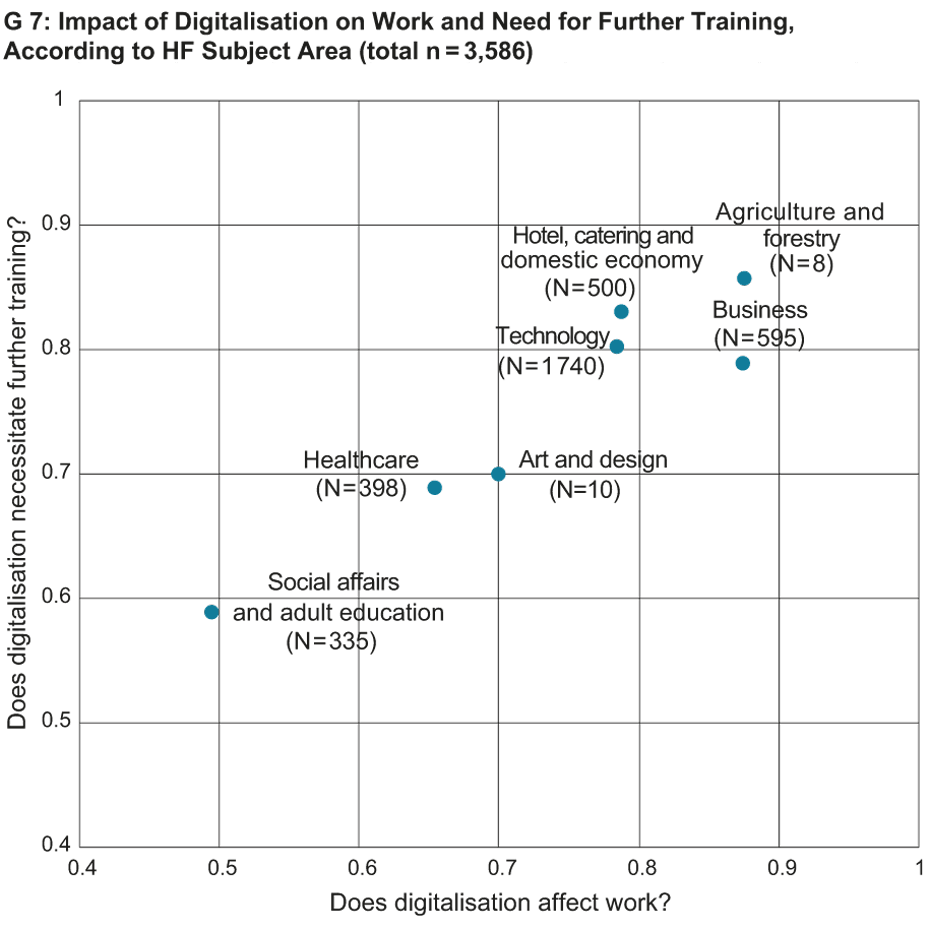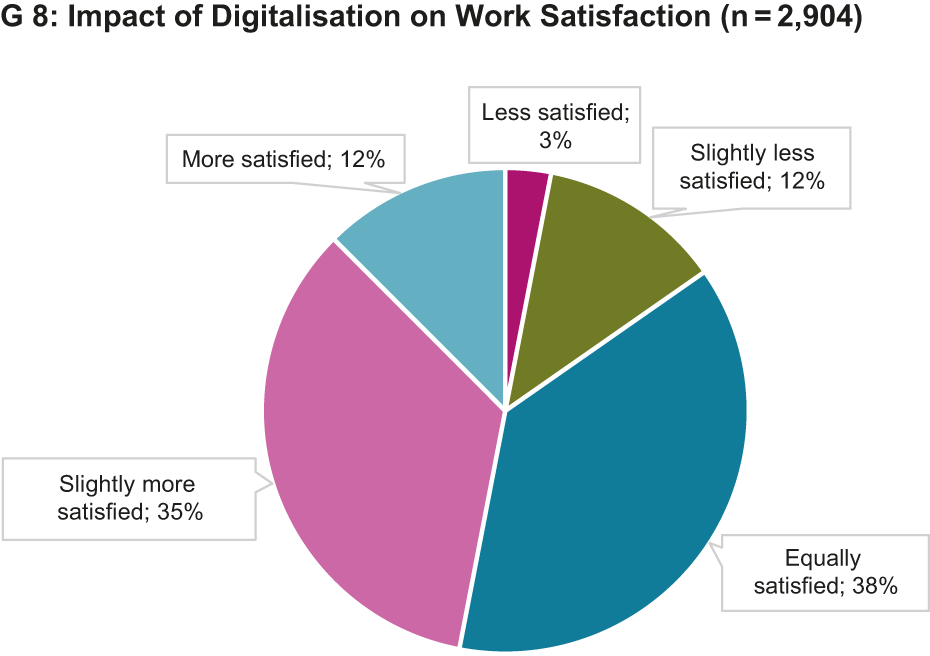Digitalisation Raises Work Satisfaction for Majority of Higher Technical College Graduates
- KOF Bulletin
- Vocational Education and Training
Nowadays, the buzzword ‘digitalisation’ is on everybody’s lips. A growing number of studies is researching the question which professions may be threatened by digitalisation and where new jobs could be created. The debate pays little attention to the impact of digitalisation on the quality of existing jobs. A survey among graduates of higher technical colleges (HF) shows that digitalisa-tion generally increases satisfaction among the respondents.
Digitalisation is defined as the conversion to digital pro-cesses and products based on information and communi-cation technology. However, as yet little is known about the actual extent of its impact on employees. In autumn 2017, ODEC 1 gave KOF researchers the opportunity to ask over 3,000 HF graduates how the digital transformation is affecting their work 2. The results are described in this article.
Impact of digitalisation varies according to area of study
The horizontal axis of Graph 7 shows the percentage of HF graduates stating that digitalisation is affecting their work. According to the results, digitalisation generally has a con-siderable impact on work. Surprisingly, the results show that work has changed most significantly in the HF subject area of ‘agriculture and forestry’, although only eight observations were collected in this field. Above-average work changes have also taken place in the ‘hotel, catering and domestic economy’, ‘technology’ and ‘business’ fields. By contrast, digitalisation has had a below-average impact on ‘healthcare’ as well as ‘social affairs and adult education’.
Further data evaluation shows that men are affected to a greater extent than women, and that the impact of digitali-sation is more pronounced on employees in large compa-nies. It is also noteworthy that the effect in French-speak-ing Switzerland is below average, while digitalisation has a very strong effect on employees in Ticino. Executives, man-agers and directors stated that their work has changed significantly. By contrast, freelancers said that they were less affected.
Furthermore, the vertical axis in Graph 7 indicates to what degree respondents believe that further training is needed due to digitalisation. Again, there are major differences between the various HF subject areas. Around 85% of the graduates of ‘agriculture and forestry’ or ‘hotel, catering and domestic economy’ courses are convinced that further training will be necessary due to digitalisation. By contrast, less than 60% of the respondents in the ‘social affairs and adult education’ field believe this is necessary.
Graph 7 also indicates a strong correlation between the impact of the digital transformation on work and the per-ceived need for further training due to digitalisation.

Positive perception of digitalisation
There is a general assumption that many jobs are being lost due to digitalisation. Hence, people hypothesise that digitalisation jeopardises job security and has a negative impact on work satisfaction. However, conversely, it could also be assumed that work contents become more attrac-tive through digitalisation and that work satisfaction rises. The data from the ODEC survey allows the authors to con-duct empirical research into the question whether digitali-sation has a positive or a negative impact on work satisfac-tion among HF graduates. Graph 8 shows that the respondents generally have a positive view of digitalisation. 47% of the respondents state that their work satisfaction is higher or slightly higher due to digitalisation. Around 38% observe that digitalisation does not affect their work satis-faction. Only 15% of the respondents have a negative view of digitalisation. These results represent an important indi-cation that digitalisation not only changes the quantity of jobs on offer but can also improve the quality of existing jobs. This positive impact has so far been neglected in the public debate.
A further insight consists of the fact that work satisfaction among respondents tends to be higher the more the work is affected by digitalisation. Digitalisation raises work sat-isfaction particularly among men, employees in large com-panies, employees in Ticino, executives, managers and directors. Furthermore, it emerges that it is especially the younger respondents who have a positive view of digitalisa-tion. However, in this context it should be noted that the impact of digitalisation has at least a neutral impact in all groups.

1 Umbrella organisation of the higher technical college graduates (all areas of study).
2 The average age of the sample was 35, with the majority of respondents aged between 25 and 49.
Contact
No database information available